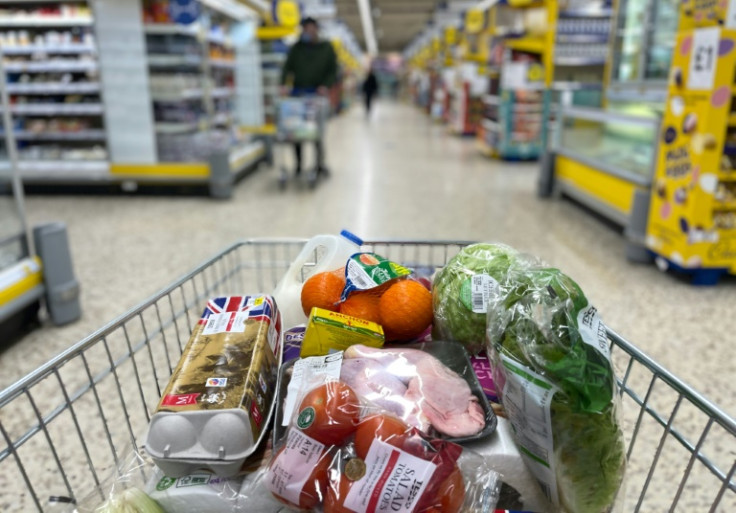High UK inflation hinders cost-of-living fight
Britain's annual inflation rate unexpectedly remained at 8.7 percent in May, official data showed Wednesday, piling pressure on the Bank of England and government to act over a cost-of-living crisis.

Britain's annual inflation rate unexpectedly remained at 8.7 percent in May, official data showed Wednesday, piling pressure on the Bank of England and government to act over a cost-of-living crisis.
Markets had forecast a drop from April's level, while the BoE was already widely expected to raise interest rates again Thursday to combat an inflation rate which is the highest among G7 nations.
The latest data is a blow for Prime Minister Rishi Sunak, who has made slashing inflation a priority for his Conservative government heading into a general election next year.
"Inflation is what erodes people's savings and pushes up prices, and ultimately makes them poorer," Sunak acknowledged in comments made to parliament following the latest data.
"It is never easy to root out inflation, but we will take the difficult and responsible decisions to do so."
The government is resisting demands from teachers and state health workers for pay rises that compensate for the high level of inflation.
That has resulted in months of strike action, as millions of Britons struggle with elevated food and energy prices.
The UK consumer prices index had been expected to cool to 8.4 percent last month while core inflation, which strips out food and energy costs, unexpectedly jumped to 7.1 percent in May, said the Office for National Statistics (ONS).
"Core inflation rose again, to its highest rate in over 30 years," noted Sarah Coles, head of personal finance at Hargreaves Lansdown.
"Lower energy costs will eventually feed into prices across the board, and we should see the pain at the supermarket subside a little in the coming months.
"However, in an awful lot of cases this isn't going to bring prices down, they'll just get more expensive more slowly," she added.
Inflation was sticky last month as the cost of airfares rose by more than a year ago, said ONS chief economist Grant Fitzner.
"Rising prices for second-hand cars, live music events and computer games also contributed to inflation remaining high," he added.
Danske Bank chief economist Michael Grahn recently estimated that the start of Beyonce's world tour in Stockholm last month contributed 0.2 percentage points to strong Swedish inflation, as fans flocked to hotels and restaurants.
Ipek Ozkardeskaya, senior analyst at Swissquote Bank, said the latest UK figures "warn that inflationary pressures... are not under control and call for further rate hikes which will further squeeze the British households".
The BoE has already lifted borrowing costs to a 15-year high at 4.5 percent in a bid to cool inflation.
This is set to rise further Thursday following a regular policy meeting in what would be the central bank's 13th rate increase in a row.
"We will not hesitate in our resolve to support the Bank of England as it seeks to squeeze inflation out of our economy," finance minister Jeremy Hunt said Wednesday.
The government wants to see inflation reduced to five percent by the end of the year, or about half the level at the start of 2023.
"Despite a modest easing in food price inflation, headline inflation remains at high levels," noted Yael Selfin, chief economist at KPMG UK.
"More worryingly for the Bank of England, strong core inflation suggests that firms may now be passing on the rising costs from higher wage bills to consumers."
Despite easing to 18.4 percent in May, UK annual food price inflation remains close to an all-time high.
"The prices go up every week. Bread, cheese... it's ridiculous," Ray Turner, 65, told AFP outside a London store run by supermarket chain Tesco.
Alba Martinez, a 35-year-old midwife on maternity leave, said she was "poorer than ever".
"We try to buy more in bulk, and cook in bulk," she added.
At the same time, mortgage rates and rents are soaring, biting hard into disposable income, as pay rises in the private and public sectors fail to keep pace with the annual inflation rate.
© Copyright AFP 2025. All rights reserved.





















